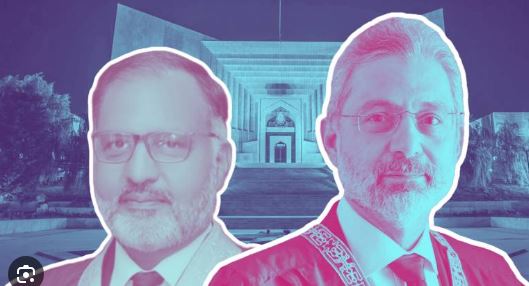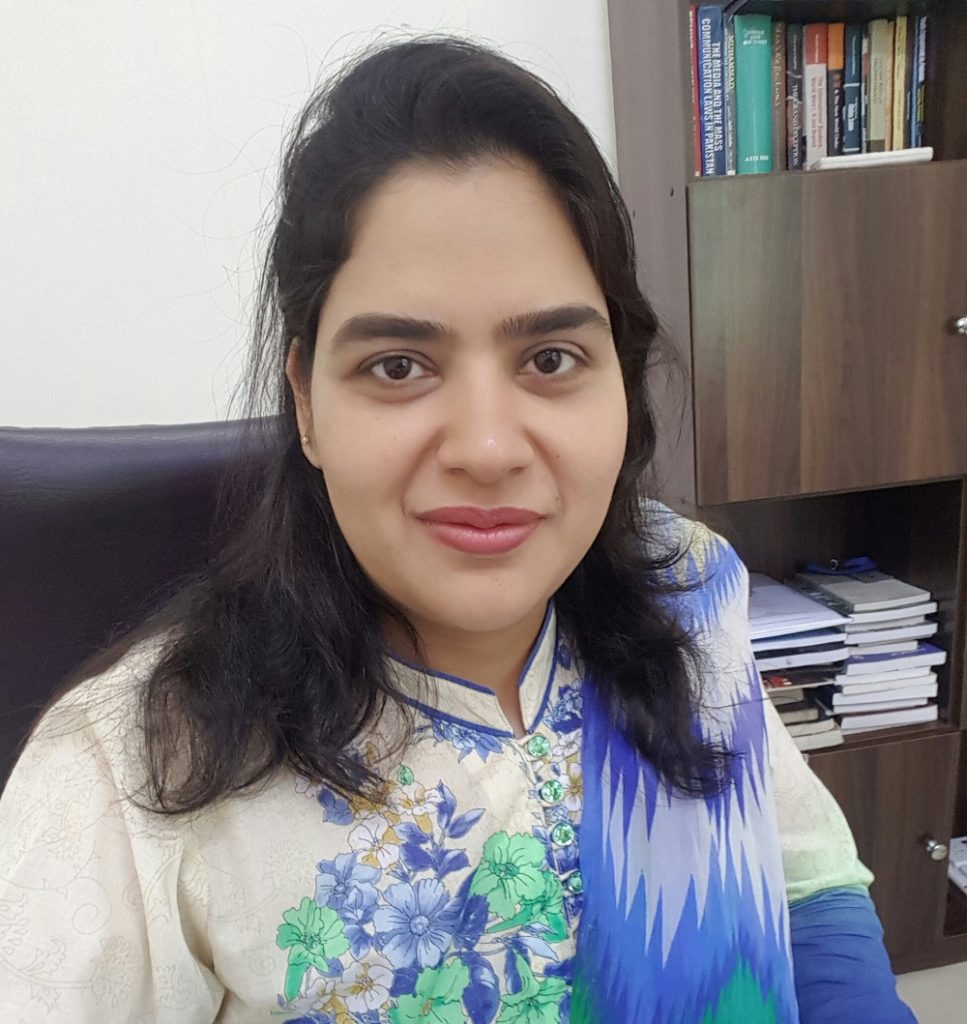Dr Lubna Zaheer
In what appears to be a historic move, a five-member larger bench of the Supreme Court headed by Chief Justice of Pakistan Qazi Faiz Isa has annulled the decision to dismiss Justice Shaukat Siddiqui from the Islamabad High Court (IHC). The written judgment clearly states that the Supreme Judicial Council (SJC)’s decision to remove the judge was illegal. The notification issued by the President on the advice of the then Prime Minister for the dismissal of Justice Siddiqui has also been invalidated by the top court. The judgment states that Justice Siddiqui has reached the age of retirement, so he cannot be reinstated as a judge. He will be a retired judge and will be entitled to all the benefits, including pension, which are available to a retired judge. Those who believe in the Constitution and the rule of law have welcomed the decision.
This tale started back in 2018 when Qamar Javed Bajwa was the Chief of Army Staff and Lt Gen Faiz Hameed was heading the ISI. Nawaz Sharif, Maryam Nawaz, family and party were under reproach. Justice Siddiqui delivered a speech at the District Bar Association, Rawalpindi. In this speech, he revealed that Gen Faiz Hameed him to pronounce judgment against Nawaz Sharif and Maryam Nawaz so that they could not come out of jail. The judge replied that he would pronounce the decision according to the Constitution and law. To this, Gen Hameed said that his (Siddique) many years of hard work would be wasted in this way.
Whatever happened to Justice Siddiqui after that episode is now part of history. The then Chief Justice of Pakistan Saqib Nasha recommended to the Supreme Judicial Council to take action against the judge under Article 209 of the Constitution and remove him from his office. The then President Arif Alvi removed Justice Siddiqui from his post in October 2018. This decision was made in such a way that Justice Siddiqui was neither heard nor he was given an opportunity to say anything in his defence. Justice Siddiqui had filed petitions under Article 184/3 against the decision. But his appeals were not scheduled for hearing. During this period, Justice Siddiqui’s media trail continued. He faced allegations of renovating the house with the government exchequer. He was associated with the Pakistan Muslim League-Nawaz (PML-N) and the propaganda about the judge continued.
Now after more or less five years, the judge has been acquitted of the charges he was facing. The decision against him has also been declared illegal. The judge has been declared entitled to financial benefits and privileges. The question is, is all this enough? Has all the requirements of justice been fulfilled by this decision? The answer is definitely no. There is a famous aphorism that justice delayed is justice denied. The same is felt in the story of Justice Siddiqui. Although the judge has been acquitted of the charges after five years. But who will bring back those five precious years of his life in which he had to face shame and disgrace due to the charges leveled against him? Who will compensate the mental agony suffered by his family during this time? He was at the peak of his career when he was sacked. He was the senior-most judge of the IHC and was likely to become the Chief Justice. Justice Athar Minullah, who is junior to Justice Siddiqui, is presently judge of the SC. Had Justice Siddiqui not been illegally dismissed, he would have retired as a Justice of the SC. Is there any remedy for this loss? Surely not.
An important question comes to minds is that those judges including the former Chief Justice of Pakistan Saqib Nisar, who participated in the ‘conspiracy’ to remove Justice Siddiqui from the path, continued to kill justice by sitting on the throne of justice. They continued to play with the interest of the country and nation. How will the decisions of these judges based on bad faith and injustice be resolved? It’s important to mention Nawaz Sharif and Maryam Nawaz on this occasion. Irrespective of political disliking, just consider how Nawaz Sharif and Maryam Nawaz were framed in false cases. A web of conspiracies was created around them. They were locked up in the cells of the jail. Valuable years of his life and career were wasted. Above all, the loss that the country and the nation had to suffer in this conspiracy game, can it be remedied? The answer is definitely no.
The court has given a decision in favour of Justice Shaukat Siddiqui. But this decision is incomplete. Though the names of the major characters have been mentioned in the decision, but the top court is still silent about them. The main character of this conspiracy, Gen Faiz Hameed is still alive. Former Chief Justice Saqib Nisar and his fellow judges, who were part of this whole game, are also alive. Why doesn’t our Supreme Court come to the conclusion to bring to book all the characters involved in this conspiracy game? Ask them for answers. All these conspiracy characters are called retired judges or retired generals. Do all these people deserve this honour? These conspiratorial characters are receiving pensions and perks worth hundreds of thousands of rupees per month from the national exchequer and are living a very luxurious life. Do these people deserve these benefits? Should there be no accountability, no reckoning from them?
Can’t our Parliament enact any legislation in this regard so that those who make such conspiracies, those who violate their oath and those who misuse their office, could be brought to justice so that in the future, no powerful person could dare to make such a conspiracy. How long will we continue to do such incomplete justice? Although Justice Siddiqui is lucky to hear this judgment in his life. Otherwise, we have many examples in front of us when people got justice after many years of death. The decision to hang Zulfikar Ali Bhutto is a fresh example of this.
Another aspect of this matter is worth noting. After the judgment of Justice Siddiqui case, many editorials were written on the subject. Comments were passed on news channels and social media as well. It was surprising to see that instead of mentioning the names of Gen Faiz Hameed, Saqib Nisar and other characters in its editorial, the biggest Urdu newspaper writes the editorial tactfully. The daily even avoids writing the names of Nawaz Sharif and Maryam Nawaz. It is beyond understanding that after the clear decision of the SC, what can prevent us from taking the name of the oppressor and the oppressed? However, it’s very important that the SC and the Parliament take a concrete step in this regard, so that such injustice can be prevented in the future.
— The author is an academician and political analyst
Disclaimer: The views expressed in this article are those of the author and do not necessarily reflect the official policy or position of Lahore Mirror



